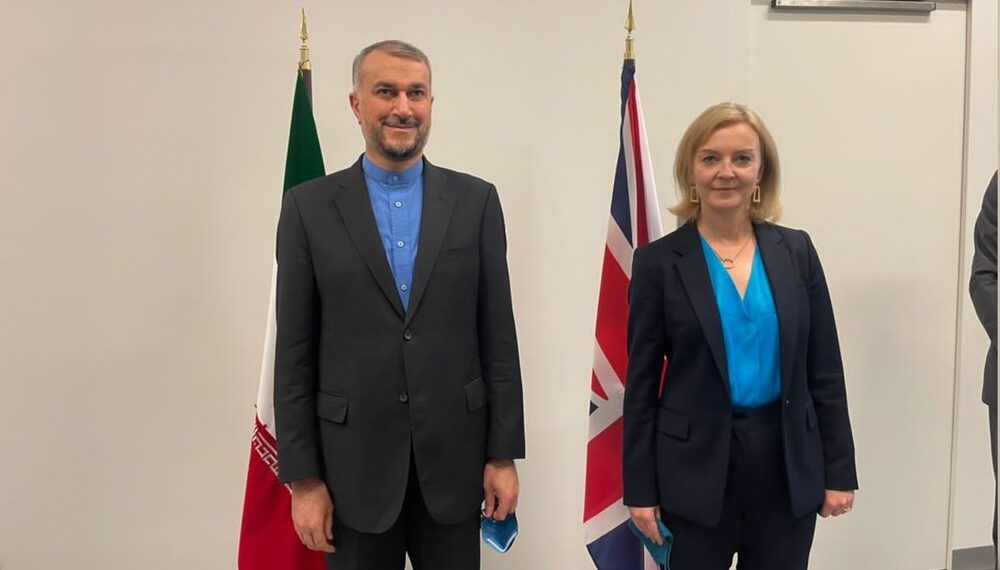The UK’s exit from the European Union has implications for its foreign policy in the Middle East, allowing it to adopt stances that differ from those of major European powers. London seeks to strengthen economic and military relations with its traditional allies in the Middle East, to compensate for the losses it has suffered as a result of its departure from the EU. While the UK is keen to match US efforts in the Indo-Pacific region, its interest in the Middle East has not declined, as the region remains the source of opportunities as well threats, that cannot be ignored in light of UK interests and security.
The UK’s engagement in Middle Eastern issues and crises has escalated dramatically in recent months, and this has been illustrated by the following stances:
Libyan elections: The Electoral Commission in Libya postponed elections scheduled for 24 December due to its inability to complete a review of the list of candidates, which sparked widespread concern over the country’s prospects for completing the political process. On the day the elections were to take place, the UK Embassy issued a statement stressing that the UK “continues to recognise the Government of National Unity as the authority tasked with leading Libya to elections.” This stands in contrast to the conviction held by several Libyan factions that the National Unity’s provisional authority ended on 24 December, as per the set out political roadmap. The statement added that the UK “does not endorse the establishment of parallel governments or institutions.” The Foreign Affairs Committee of the Libyan House of Representatives considered the British statement a violation of diplomatic norms and unwarranted interference, and therefore declared the UK Ambassador as persona non grata. As Libyan resentment over the UK statement intensified, the embassy issued a new statement on 26 December to clarify the official position. The statement confirmed the UK’s firm commitment to the ongoing political process in Libya, and the urgent holding of parliamentary and presidential elections.
Iran nuclear program: With negotiations in Vienna over the Iran nuclear agreement appearing to falter, UK Foreign Minister, Liz Truss declared that London would not allow Iran to possess a nuclear weapon, and that it would work with its allies to prevent it. In a joint article for the Daily Telegraph published on 28 November, UK Foreign Secretary Liz Truss, and Israel’s foreign affairs minister Yair Lapid declared that London and Tel Aviv will work together to prevent Iran from becoming a nuclear power. The UK Minister said that the Vienna talks were Iran’s last opportunity to return to the Joint Comprehensive Plan of Action, because it was in its interest to do so. However, Britain’s perceived bias towards Israel, which strongly opposes the renewal of the agreement, could undermine its efforts to revive the agreement.
Iranian missile tests: British policy towards Iran extends to the latter’s missile program as well. After the Trump administration abandoned the Joint Comprehensive Plan of Action, Tehran not only increased its uranium enrichment up to 60 percent, it also increased its focus on its missile programme. This has been perceived as a threat to regional and international security. Therefore, on 24 December 2021, London denounced Iran’s launching of ballistic missiles in military exercises, and called on Tehran to cease these activities immediately as they stood in violation of Security Council resolution 2231.
Jihadist families: Unlike many Western countries who have allowed some of their nationals who were involved with Jihadist groups in Syria, now detained in camps, to return, Britain imposed severe restrictions. Authorities say these individuals pose a threat to British national security and have revoked the citizenship of some. The British Home Office indicated that in some cases, it would agree to the return of children if their mothers allowed. Meanwhile, a report by Rights and Security International last October, stated that British children and women are being tortured in concentration camps in northeast Syria, and face the risk of death. The Executive Director of the organization, Sarah St. Vincent said that, “by refusing to bring these children and women back to the UK when it could do so, the British government is abandoning people – including its own citizens – to torture and death.”
According to press reports, the British government is funding prisons that hold hundreds of ISIS children. Britain has provided USD 20 million, approximately GBP 15 million, to improve prison conditions in the area run by the Syrian Democratic Forces (SDF) militia.
Humanitarian assistance to Afghanistan: The economic impact of COVID-19 has led the British Government to cut aid to several conflict zones in the Middle East. At a G7 meeting last December 12 in Liverpool, the UK pledged GBP 75 million (USD 100 million) in emergency aid to provide food, health services, shelter and water to more than 1.8 million Afghans. This assistance is part of the GBP 286 million that Britain has pledged to Afghanistan this year to support victims of domestic violenc and to fund basic child protection services.
The Middle East is of strategic importance to Britain following its withdrawal from the European Union. It is therefore expected that the UK will seek to strengthen its geopolitical influence by expanding its trade, arms sales, and military cooperation with its traditional allies in the region. It will also try to use the Middle East to demonstrate its military strength at the regional and international level. On 24 November 2021, UK Minister of Defence Ben Wallace indicated that London intends to relocate a major military base in Canada to the Sultanate of Oman, which suggests that Britain is seeking to strengthen its role in the reformulation of security and political arrangements under way in the region.


